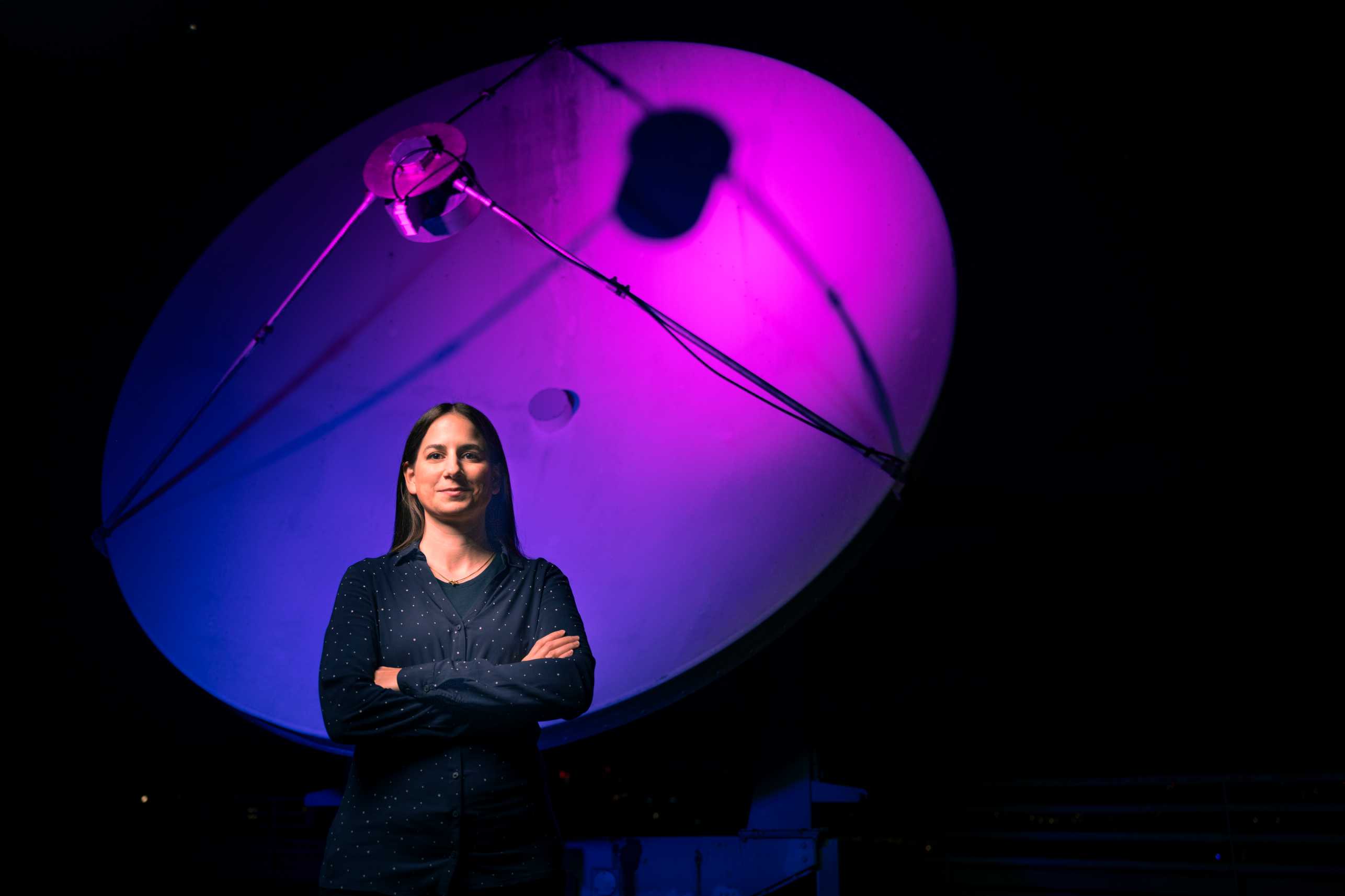“Researching the building blocks of life”
Where does mankind come from? And why was life able to develop in our solar system? These are two of the questions, which ETH alumna and professor of astrochemistry at the University of Bern, Susanne Wampfler, is absorbed with. We talk to her about her fascination with the stars and why she chose a course at ETH.
When you were a child, what did you want to be?
Like most children, my dream job changed all the time. When I was at kindergarten, I wanted to be a doctor, and then later on it was a teacher. While at primary school, I was suddenly very taken with astronomy, but at the time I wasn't aware that being an astrophysicist was a career option and it was only towards the end of high school that I really started to focus on it.
Why did you decide to study at ETH?
It was actually a matter of cost; I only considered a course that I could commute to from Aargau, where I grew up. After I had attended various information days and learnt about what was on offer at ETH Zurich and the University of Zurich, I opted for ETH on the basis of the elective courses available in astrophysics. In those days, there was still an introductory lecture into astronomy and a beginner’s course in astrophysics for first-year students. When it came to specialising, there was a huge choice of astrophysics lectures.
“When we look up into the heavens, it feels like the stars have always been there but even they come and go.”Susanne Wampfler
What fascinates you about how the stars were created?
It is certainly firstly to do with the question of where mankind comes from and why life was able to develop in our solar system, and secondly the fascinatingly long time scales and huge distances. When we look up into the heavens, it feels like the stars have always been there but even they come and go. As an astrochemist, I research the material that new stars and planets are made of and investigate the question of whether our solar system was special or whether the basic building blocks and conditions for the emergence of life also exist in other planetary systems.
How would you describe a typical working day for you?
They can be very different. Some days I spend a lot of time at the computer, be it analysing data, writing research applications or dealing with administration. On other days, I might go to lectures and meetings, teach, handle media work, attend a conference or spend time looking through the telescope.
When you look back at your course at ETH, do you have any “tips” for today’s students?
Never be afraid of asking what feel like “stupid” questions. Accept help and explanations from assistants. Don’t outsmart yourself (for example, understanding a sample solution is not the same as finding the approach to solving the problem yourself). Find fellow students with whom you can study together and support one another. If you pay attention during lectures, it will take you less time later on to work through the material. A lot of value is placed on mobility these days - if you are able, you should consider an exchange semester or writing the dissertation for your Bachelor’s or Master’s at a different university. And don’t give up should you fail an exam.
12 March 2023 - ETH Alumni@ETH Science City with Susanne Wampfler

The ETH Alumni Association is inviting alumni and alumnae to a talk followed by a “Meet the Scientist” with ETH alumna and professor of astrochemistry at the University of Bern, external page Susanne Wampfler. The talk on “The building blocks of life” will take place at 1 pm on 12 March 2023 at the ETH Hönggeberg campus.
From 2.30 pm onwards, Susanne will then meet ETH alumni in the nearby alumni lounge, where she will be sharing her experiences as a researcher and answering questions.
